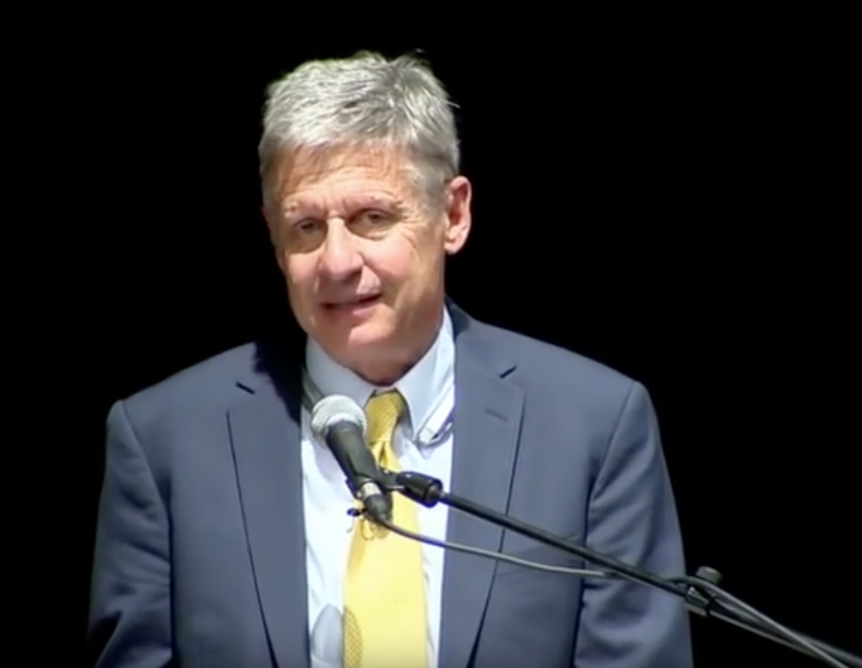The 2016 presidential election cycle has been historic to say the least, and we have a unique opportunity on November 8. We as Pennsylvanians have the chance to vote for an individual with experience in the private and public sector, an individual with ideas and policies that can span across the aisle and bring congress together. We have the perfect opportunity to elevate an individual to the highest office in the land; an individual who is humble, pragmatic, sensible, determined, and, above all, qualified.
Gov. Gary Johnson provides voters with a multitude of reasons why he should be the next president of the United States. Johnson has real-life business experience and is a true entrepreneur. To pay for college, he started a door-to-door handyman business. Twenty years later, the one-man shop had grown into one of the largest construction companies in New Mexico, with more than 1,000 employees. He later ran for Governor with no prior experience other than his college political science degree and a passion for helping people. Incredibly, he ran as a Republican but was elected and re-elected in a heavily Democratic state.
Johnson believes that good public policy should be based on a practical cost-versus-benefit analysis rather than strict ideology. It was this belief that led him to veto more than 750 wasteful bills during his time in office. He also cut taxes 14 times while never raising them. Johnson balanced the state’s budget and left New Mexico with a billion-dollar surplus. While he was reducing taxes and the size of government, he improved New Mexico schools, executed a major infrastructure overhaul, and earned national accolades for his leadership in handling the devastating Cerro Grande Fire that swept across the state in 2000.
Johnson worked tirelessly to provide a good education for the children of his state. Having served as governor of a border state, Johnson is well-versed in the complex issues associated with immigration reform. Solving immigration problems is not as easy as building a wall or simply offering amnesty. As governor, Johnson supported policies that incentivized job growth. In 2012, He was praised as having the best “job creation” record of all presidential candidates. Johnson has pledged that his first major act as President will be to submit to Congress a truly balanced budget. No gimmicks, no imaginary cuts in the distant future, just real reductions to bring spending in line with revenues without tax increases.
Johnson believes we can, and must, strike a balance between our shared American values of freedom from discrimination and religious liberty. He believes that people, not politicians, should make choices in their personal lives. Responsible adults should be free to marry whomever they want, protect themselves with firearms if they so choose, and lead their personal lives as they see fit – so long as they aren’t harming anyone else while doing so. As president, Gary Johnson will move quickly and decisively to cut off the funding on which violent extremist armies depend. He will repair relationships with our allies. And he will only send our brave soldiers to war when such action is clearly authorized by Congress after meaningful, transparent deliberation.
Source: OPED: A vote of confidence for Gary Johnson


